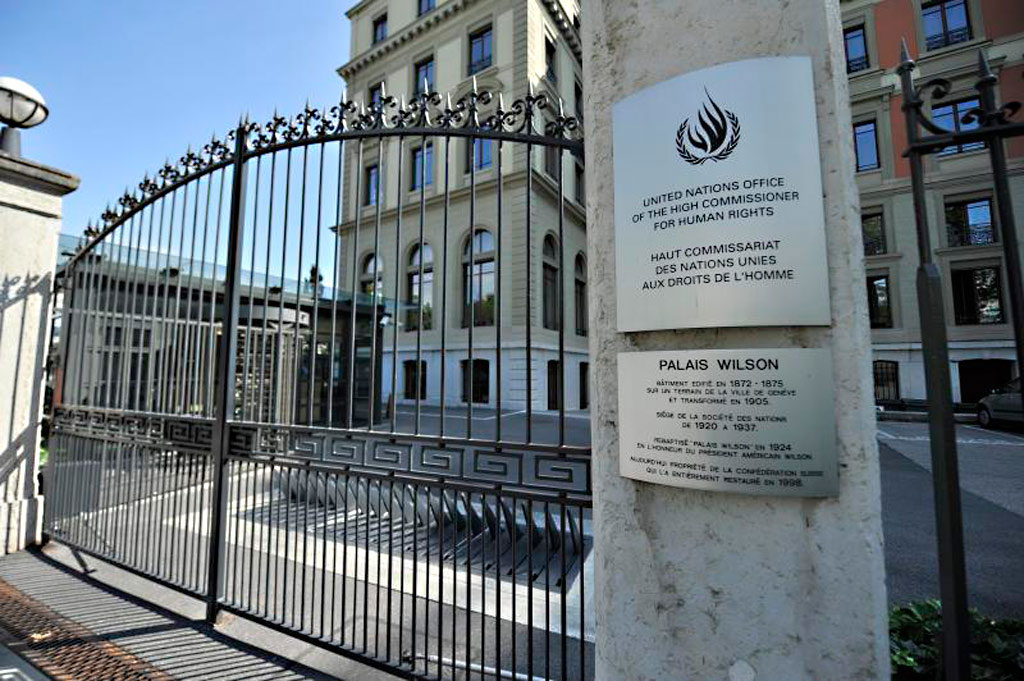UN experts set uncomfortable questions in Belarus anti-discrimination report
The lack of anti-discrimination legislation, the absence of an ombudsman, the problem with the independence of the judiciary and the legal profession, the presence of the President's decree on social dependency, lack of cooperation between the government and the civil society — these and other concerns, which characterize the overall situation of human rights in the country, were raised before the official delegation of Belarus during the consideration of the country’s report in the UN Committee on the Elimination of Racial Discrimination.
The periodic report of Belarus on the implementation of the Convention on the Elimination of All Forms of Racial Discrimination (CERD) was held from on November 30 – December 1. The official delegation of Belarus headed by Yury Ambrazevich, Permanent Representative of Belarus to the UN in Geneva, was composed of representatives of the Ministry of Foreign Affairs, Ministry of the Interior, Ministry of Education, Office of the Commissioner on Religious and Ethnic Affairs, the National Center of Legislation and Legal Research.
The meeting was attended by representatives of organizations that participated in the preparation of an alternative report, the Belarusian Helsinki Committee, Human Constanta, Forb Initiative, Center of Equal Rights Expertise, experts of the Helsinki Foundation for Human Rights, as well as the Human Rights Center "Viasna", Center for Legal Transformation Lawtrend and others.
The Committee’s experts inquired about the prospects for the adoption of anti-discrimination law, which was one of the previous recommendations made by the Committee, and the legally guaranteed differentiation between the concepts of direct and indirect discrimination. The representatives of state bodies replied that according to the National Human Rights Plan work in this area began in 2017 and will be completed in 2019 after it is decided whether there is a need for such work.
At the beginning of the meeting, Uladzimir Zhauniak, Deputy Director of the National Center of Legislation and Legal Research, noted that the Convention on the Elimination of All Forms of Racial Discrimination is part of national law and its norms apply directly in Belarus. But the Committee were interested in specific points: the application of the Convention by the courts, references in the complaints of victims of violations. And when the delegation was asked to provide specific examples that would indicate the effectiveness of the Belarusian legislation, there was no answer.
The Committee expressed concern that the burden of proving discrimination, in accordance with national law, can be imposed on the victims of discrimination. Asking about the statistics of prosecutions for crimes on national ground, one of the experts gave an example when such a motive was not established even when the citizen accused of vandalism openly declared to belong to a racist organization.
When asked about the possibilities of citizens’ appeals to the Constitutional Court, the situation of the independence of judges and pressure on lawyers, the official delegation simply enumerated the provisions of the Belarusian legislation, which declare to guarantee the citizens’ rights. The Committee members expressed well-founded doubts that in a country where the President appoints and dismisses the judges, where the state interferes in the activities of the Bar, one cannot speak of independent and fair judicial decisions. And the absence of the citizens’ right to appeal to the Constitutional Court is an obstacle to access to justice, the Committee said.
Among the arguments against the introduction of the position of an ombudsman, the official delegation mentioned the existence of the prosecutor's office, which is authorized to exercise overall control over violations of the law, including human rights, and this, according to the officials, is sufficient. As told by Yury Ambrazevich, “we will not discuss the myth of the independence [of the ombudsman - Ed.]”. Most EU countries do not have such a post, he said. Later, Alexey Avtonomov, member of the Committee representing the Russian Federation, corrected him: most European countries do have a national Institute for Human Rights, but is called differently.
As for the lack of cooperation with NGOs in the preparation of the periodic report, Yury Ambrazevich noted that the Convention does not provide for such an obligation, while earlier cooperation with NGOs was conducted in the preparation of the report under the Universal Periodic Review at the Human Rights Council.
Special attention of the Committee was given the situation of the Roma, the problems of stateless persons and migrants in the Republic of Belarus, which was highlighted in their alternative reports by the civil society groups. Representatives of the government agencies were asked questions regarding the alarming reports on discrimination and profiling of Roma by law enforcement officials, the use of hate speech against them, difficulty in access to housing, education and medical care. UN experts recalled the ‘strange law on social parasitism’, wondering how a non-working citizen can be forced to pay compensation for the unpaid taxes, and mass arrests in March for taking part in protests against the law. It was noted that particularly vulnerable in such a situation are the representatives of the Roma people, who cannot get a job or are forced to leave for employment in Russia.
In a comment on the issue of the infamous Decree No. 3 and the ‘very heavy burden which lies on the Roma people’, head of the official delegation said that it applies to all the people with low incomes, if they do not legalize their incomes.
Finally, Yury Ambrazevich thanked the Committee members for their professionalism, noting that they represent almost all the continents, but regretted that ‘there are no Gypsies on the Committee.’
After examining the State report, the Committee is expected to provide its views and recommendations in the form of ‘concluding observations’. The work of the 94th session of the UN Committee on the Elimination of Racial Discrimination in Geneva will continue until December 8.


















